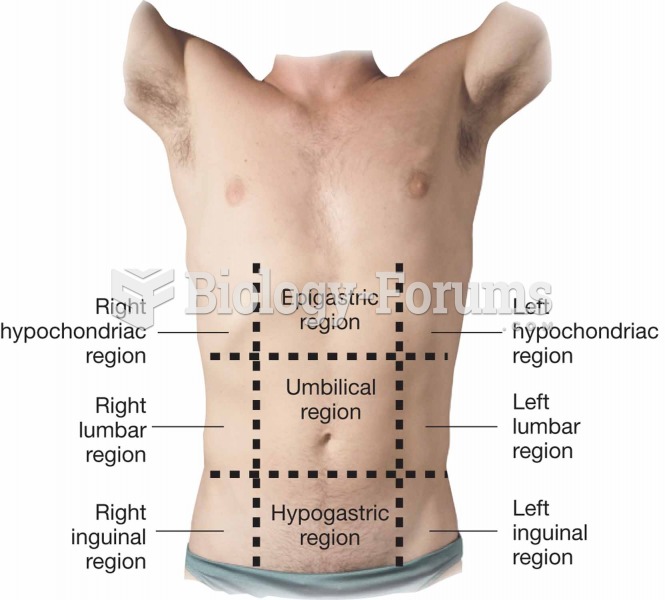|
|
|
Amphetamine poisoning can cause intravascular coagulation, circulatory collapse, rhabdomyolysis, ischemic colitis, acute psychosis, hyperthermia, respiratory distress syndrome, and pericarditis.
More than nineteen million Americans carry the factor V gene that causes blood clots, pulmonary embolism, and heart disease.
The senior population grows every year. Seniors older than 65 years of age now comprise more than 13% of the total population. However, women outlive men. In the 85-and-over age group, there are only 45 men to every 100 women.
The familiar sounds of your heart are made by the heart's valves as they open and close.
People often find it difficult to accept the idea that bacteria can be beneficial and improve health. Lactic acid bacteria are good, and when eaten, these bacteria improve health and increase longevity. These bacteria included in foods such as yogurt.
 When introduced into a new area, rabbits can overpopulate rapidly, becoming a nuisance, as on this u
When introduced into a new area, rabbits can overpopulate rapidly, becoming a nuisance, as on this u
 The Cardiac Landmarks. A = Aortic Area; P = Pulmonic Area; E = Erb’s Point; T = Tri
The Cardiac Landmarks. A = Aortic Area; P = Pulmonic Area; E = Erb’s Point; T = Tri





